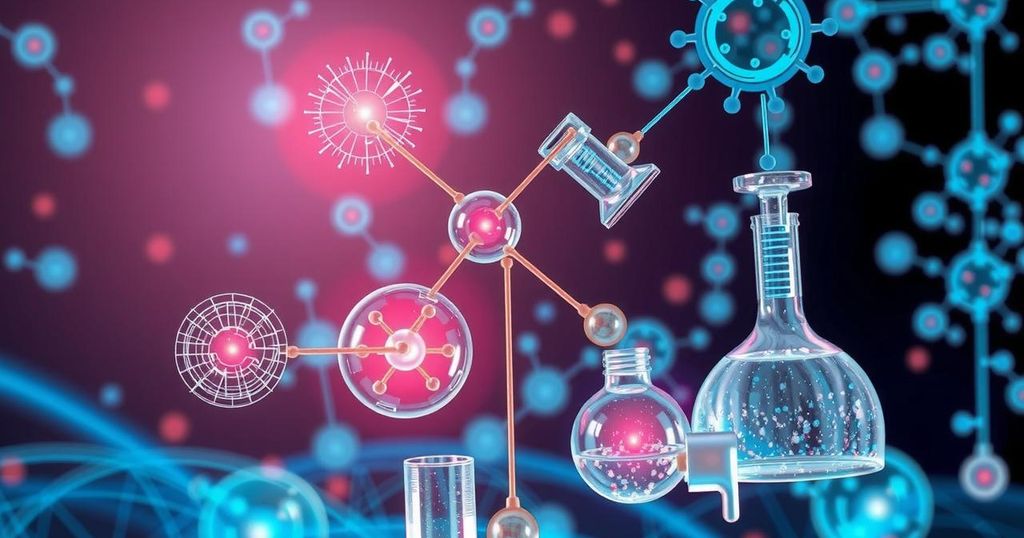Revolutionizing Science: Microsoft’s AI and Quantum Leap into Discovery
Microsoft’s announcement of Azure Quantum Elements is set to transform scientific discovery by integrating generative AI and quantum-classical computing. New tools like Generative Chemistry and Accelerated DFT allow researchers to streamline their discovery processes, accelerating innovation across various fields. Collaborations with major companies like Unilever showcase the practical applications and benefits of these technologies, promising a future where scientific advancements are achieved faster than ever.
In a bid to revolutionize scientific discovery, Microsoft introduces a new paradigm blending the powers of generative AI with quantum-classical hybrid computing. With tools like Azure Quantum Elements, researchers can fast-track their experiments, allowing them to generate novel molecules and synthesize them in record time. Initiatives such as Generative Chemistry and Accelerated DFT create a future where scientists can compress decades of research into mere days, propelling industries from medicine to environmental sustainability into new realms of possibility. Collaborations with leading firms like Unilever highlight the practical impacts of these technologies, driving product innovation and sustainability efforts, ultimately forging a better world by the hands of empowered scientists. This advancement invites researchers into an era where AI opens expansive horizons in molecular design, ensuring creativity and scientific inquiry are no longer restrained by time or resources.
Microsoft’s push for integrating AI into scientific methodologies stems from an urgent need to tackle global challenges, including climate change and the demand for sustainable products. By harnessing generative AI and advanced quantum computing capabilities, they aim to reshape how scientific inquiries are approached. Azure Quantum Elements exemplifies this commitment, providing a tailored platform to revolutionize workflows in chemistry and materials science, and exemplifies Microsoft’s dedication to empowering scientists across various sectors. This not only supports their scientific endeavors but accelerates innovation at an unprecedented pace.
Microsoft’s venture into AI-augmented scientific discovery signals a transformative moment for researchers worldwide. Through tools like Generative Chemistry and Accelerated DFT, scientists can expect unrivaled efficiencies in developing new molecules and simulating processes. Collaborations with industry leaders further emphasize the transformative potential of these technologies. As AI continues to reshape methodologies, we stand on the brink of a new scientific renaissance, driven by the boundless creativity of researchers empowered by innovative digital tools.
Original Source: blogs.microsoft.com




Post Comment